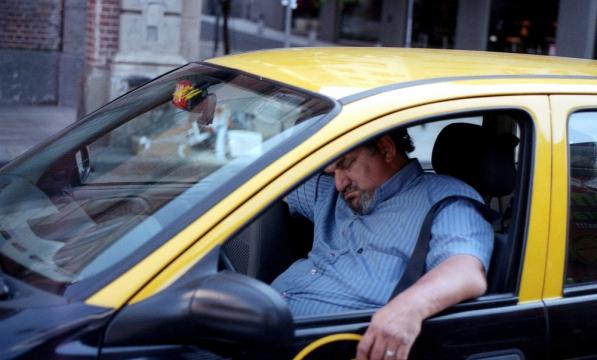Slow progress with sleepy drivers

Tired drivers
Last week, Road Justice highlighted the consequences of driving while tired in a tragic Northumberland case involving forklift truck driver Neil Urwin. He managed to drive into the rear of cyclist Alan Charlton on a straight road in daylight.
Unwin was convicted of causing death by dangerous driving, and the prosecutor Richard Bennett said at his trial that: “Either Mr Urwin was nodding off at the wheel before he saw Mr Charlton at the last minute or he was simply so tired he was not able to concentrate properly as he drove along the road.”
With driver fatigue estimated to be a contributory factor in 20% of road collisions and up to a quarter of fatal and serious injuries, holding drivers to account for their decision to drive while tired is an important part of the enforcement process -– but only one part.
Approximately 25% of road casualties involve a driver who was at work at the time. The Royal Society for the Prevention of Accidents (RoSPA) specifically identifies truck and HGV drivers as a risk group and provides guidance to employers regarding their responsibilities regarding the drivers they employ.
Employer’s responsibilities
CTC has reported on this issue previously regarding Frys Logistics Limited of Launceston. The company employed lorry driver Robert Palmer, convicted of causing the deaths of charity cyclists Toby Wallace and Andrew McMenigall after he drove his lorry into both while exhausted.
Frys was content for Palmer to work double shifts, repairing vehicles in the workshop and then consecutive shifts driving a lorry. The missing part of the enforcement package in this and many similar cases is often the failure to adequately regulate or prosecute the employer.
Two years on, neither the Health and Safety Executive nor the Police have commenced any prosecution of Frys or its directors, including Transport Manager Mark Darren Fry.
CTC has written to the Chief Constable of Devon and Cornwall and the Health and Safety Executive regarding the failure to prosecute, referring to cases which are difficult to distinguish from this, where employers have been convicted either of manslaughter or Health and Safety Act offences after ignoring the issue of driver tiredness. A full response is still awaited.
Frys Logistics called to Public Inquiry
CTC has also written to the Coroner, who declined to hold a full inquest, and the Traffic Commissioner for the West of England, who is responsible for the regulation of HGV operators and has the power to revoke Frys’ licence.
Having also raised the issue of regulation of HGV operators in various forums including our submissions to the Transport Select Committee (which has asked us to attend to give evidence to the committee this month), it would finally seem that some progress is being made.
CTC has been informed by the Transport Commissioner’s Office that Frys Logistics Ltd has been directed to attend a Public Inquiry in Bristol on the 16 November, 28 months after the incident, when the company’s operator’s licence will be reviewed.
CTC will continue to demand effective regulation of and enforcement against HGV operators, not just their drivers, until the message sinks in that knowingly putting tired drivers in HGVs and other vehicles carries personal, corporate and commercial liabilities and consequences. Next stop – convincing the Select Committee!






